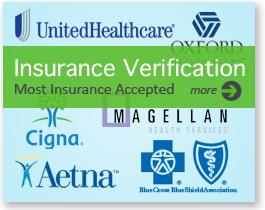
Inpatient Rehab as a Treatment Option

As graduation approaches at inpatient drug rehab centers, transitional support can guide and prepare patients for the sober life that lies ahead. Inpatient drug rehab centers provide transitional support in a variety of ways, ranging from basic aftercare planning to a la carte services that can be added to bolster treatment (such as sober coaching and shadowing services). Some inpatient drug rehab centers also offer extended care programs or sober living facilities in which patients can practice sober living skills in a supervised and safe environment that promotes addiction-free living.
Aims of Transitional Support at Inpatient Drug Rehab Centers
Inpatient drug rehab centers offer transitional support as an opportunity for patients to begin anew as they approach sobriety. Transitional support partners patients with drug addiction professionals experienced in potential addiction pitfalls, positive life-building skills and the continual care necessary to promote successful sobriety. Patients learn to prepare lifestyle choices, home environment and support systems that will best position them for continued and relapse-free recovery.
Types of Transitional Support Available at Drug Rehab Centers
As you approach your transitional period on the heels of inpatient drug rehabilitation, you may have the option of selecting additional transitional support services to aid in your recovery process. We’ve outlined the most frequently encountered modes of transitional support below, all of which can help build a foundation of further recovery and support to help cement a sober future.
Aftercare Services
Aftercare services generally are included in a residential stay at inpatient drug rehab centers. Patients partner with addiction counselors in order to anticipate potential obstacles, triggers and challenges that may arise in the days and months after drug rehab. Patients assess their home environments, work situations, daily routines and existing support systems, reflecting on areas of strength and making contingency plans to help provide recourse when weaknesses are encountered.
Sober Coaching Services
Sober coaching services generally are not standard parts of a residential drug rehab stay. However, many inpatient drug rehab centers can offer sober coaching services – or refer patients to reputable sober coaches in order to provide additional transitional support in sobriety. Sober coaches can provide shadowing services in the period after rehab, familiarizing themselves with the patient’s daily routine and making suggestions for positive changes to promote ongoing sobriety. Sober coaches can also help situate patients in their new sober lives, arranging for physician appointments, therapist referrals, environmental changes, relocation and support group attendance.
12-Step and Support Group Participation
12-step groups can be a tremendous support throughout recovery, particularly during the transitional period. Free and bound by confidentiality and anonymity, support groups and 12-step meetings can allow recovering individuals to build sober support networks. Graduates of inpatient drug rehab centers can also learn successful strategies for sobriety, add focus to their own recovery and experience the benefits of supporting others in sober living.
Sober Living Environments
Sober living environments offer extended stays for graduates of inpatient drug rehab centers to allow for additional support during the transitional period. Those who still have recovery work to do after the close of a treatment period may consider sober living environments as a way to continue treatment before returning home. While peer-run sober living homes exist, the majority offer involvement and monitoring by qualified addiction professionals. Depending on the sober living environment graduates select, they may involve more active therapies or simply supervised, sober environments in which to safely assimilate into the outside world. Some sober living homes require that individuals enrolled hold down some form of employment or volunteer work, while others require that residents simply focus on further recovery from drug addiction.
Further Reading
- Benefits of a Palm Springs Area Drug Rehab
- Choosing a Center
- Choosing the Right Facility
- Considering Outpatient as a Treatment Option?
- Convincing a Loved One to Attend Drug Rehabilitation
- Drug Abuse Rehab
- Drug Recovery in Los Angeles
- Drug Rehab for Celebrities and Public Figures
- Drug Rehab Programs
- Drug Rehabilitation Statistics
- FAQ on Heroin Rehab
- Holistic Rehab
- Inpatient Rehab as a Treatment Option
- Medical Clinics for the Treatment of Addiction
- Paying for Drug Rehab
- Residential Drug Rehab
- The Admissions Criteria for a Drug Rehab Program
- The Benefits of Rehab in Los Angeles
- The Efficacy of Long Term Treatment
- The Process of Addiciton Rehabilitation
- Tips on Finding the Right Cocaine Rehab
- Types of Specialists at a Drug Rehab Center
- What to Bring to Drug Rehab






